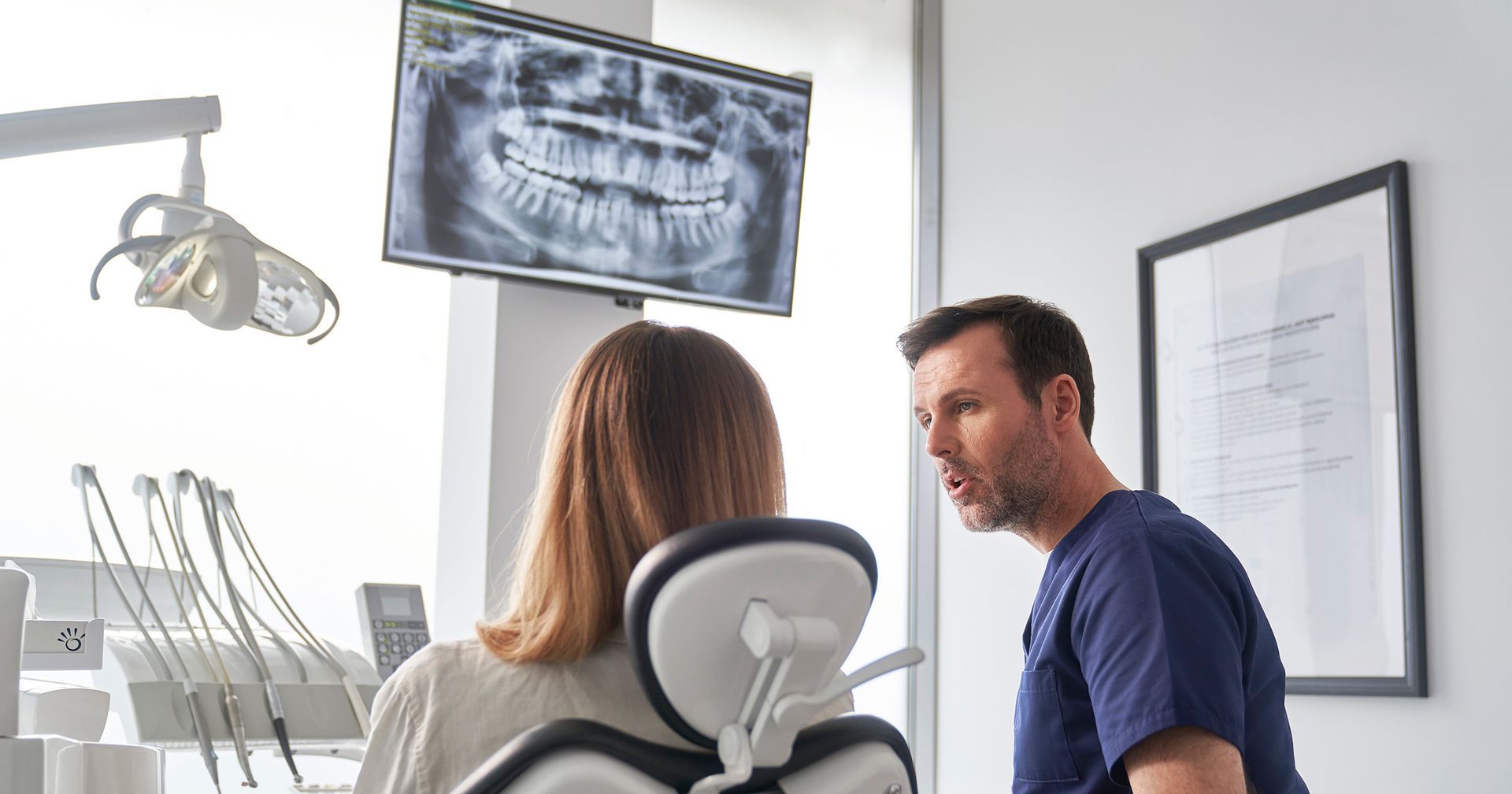Dental Implants vs. Dentures: Which Is Right for You?
Dr. Barry LeJeune
Confused about dental implants vs. dentures? Learn their differences and make an informed choice for your smile.
Many Americans have lost at least one permanent tooth, often due to tooth decay or gum disease.
Indeed, according to the American College of Prosthodontists (ACP), over 120 million people in the U.S. have at least one missing tooth. ACP also says that 36 million U.S. adults are edentulous, meaning they no longer have any of their natural teeth. Of the latter, about 90% wear traditional dentures.
If you also have one or more missing permanent teeth, you may have wondered if you should get dentures. Before you do, you should first compare dental implants vs. dentures.
In this guide, our team at
LeJeune Family Dentistry in Hampton, VA, will explore the pros and cons of dental implants and dentures. So read on, as what you discover here can help you make a more educated choice between these two teeth replacement options.
Dental Implants vs. Dentures: A Quick Overview of Differences
Dental implants involve a surgical procedure. Your dentist will place a threaded post into your jawbone, which acts as a replacement tooth root. The post will then serve as the anchor for the artificial tooth, such as a dental crown.
If you need to replace multiple or all of your teeth, you can still get implants. In this case, your dentist will likely use several implants to support your fixed permanent dentures.
On the other hand, traditional dentures are removable prosthetic teeth. Unlike implants, they don't require surgery. However, since they're removable, they don't offer the same level of longevity as
dental implants.
Primary Dental Implants Benefits
Of all your teeth replacement options, implants provide the longest-lasting oral health solutions. Because they involve surgical replacement of missing or lost tooth roots, they:
- Last much longer than dentures
- Stimulate jawbone tissue
- Keep the jawbone healthy and intact
- Provide an anchor for natural-looking replacement teeth
- Restore optimal chewing function
Longer Lifespan Than Dentures
Dental implant crowns can last for 10 to 15 years or even longer. The implant, the replacement tooth root that fuses with the jawbone, can last a lifetime. Although failures can occur, the rate is low, at only 5%.
To ensure your dental implants last that long, you must:
- Practice proper long-term dental care
- Have optimal oral hygiene habits
- Take regular trips to the dentist
By contrast, according to an article published in the National Library of Medicine, traditional removable dentures can only last five to ten years.
Improved Jawbone Health
After your dentist surgically places the dental implants, the artificial tooth roots will fuse with your jawbone. Health experts refer to this "fusion" as "osseointegration."
Through osseointegration, implants become part of the bone, which is why they can last a lifetime. It's also thanks to this process that implants can function much like tooth roots, and that's to stimulate the jawbone.
Stimulation helps preserve your jawbone and keep it healthy and intact. If the jawbone goes too long without this stimulation, it can deteriorate through what health experts call "resorption."
Of all your tooth replacement options, implants are the only ones that can stimulate the jawbone and help prevent resorption.
Enhanced Smile With Natural-Looking Artificial Teeth
Gone are the days when tooth replacement options looked unrealistic. With today's innovative dental technologies, dentists can create more natural-looking teeth.
The best dentists use better materials like porcelain to make artificial teeth look like your natural pearly whites. Porcelain is an excellent choice as it's durable and has a surface texture, shine, and translucence similar to tooth enamel.
So, for the best way to restore your natural-looking smile, consider investing in high-quality dental implants.
Restored Chewing Ability
Your dentist will secure your natural-looking artificial teeth to the implants using connectors called "abutments." They'll also ensure the replacement teeth fit perfectly into the space left by your missing pearly whites. With these steps, your dentist can fix the artificial teeth (or permanent dentures on All-on-4 implants) in place.
With "permanent" and fixed replacement teeth, you don't have to worry about them being loose or jiggling while you eat.
You can enjoy your favorite healthy foods and chew them properly, like when you still had your natural pearly whites.
Cons of Dental Implants
The primary drawbacks to dental implants are their lengthy process and cost. Since implants require surgical placement, they'll cost more than removable dentures. You also have to wait a few months for the implants to fuse with your jawbone and for your mouth to heal and recover from the surgery.
Still,
dental implants' many benefits and advantages outweigh their lengthy process and cost.
Perks of Traditional Dentures
Because traditional dentures don't require surgical placement, their use doesn't require extensive preparation. If you've lost your teeth long ago, and there's no injury to your gums, you can likely wear them immediately.
If you have gum disease, which, according to the U.S. CDC, affects about 40% of U.S. adults 30 years or older, you would have to undergo treatment first. Then, once your gums are healthy enough, your dentist can let you start wearing your dentures.
Today's dentures are also more natural-looking than those made many years ago. While this means modern dentures cost more, they're still less expensive than implants.
Drawbacks of Traditional Dentures
High-quality, perfectly fitting removable dentures can help you chew and speak better. However, since they're not "permanently" affixed to your mouth, they don't stimulate your jawbone. So, unlike dental implants, they can't help with bone preservation.
Also, as mentioned above, dentures have a shorter lifespan than dental implants. And because they're removable, there's a risk of them getting lost or misplaced.
Let Dr. LeJeune Help You Choose
With this dental implants vs. dentures comparison guide, we hope you can make a more informed decision about the best option for your needs.
However, if you're still unsure, worry not! Our highly experienced and caring dentist, Dr. LeJeune of LeJeune Family Dentistry in Hampton, VA, will use his 26 years of experience to guide you in making the right decision.
Get in touch with us today to learn what our excellent dentist and staff can do to help restore your healthy, beautiful smile!











